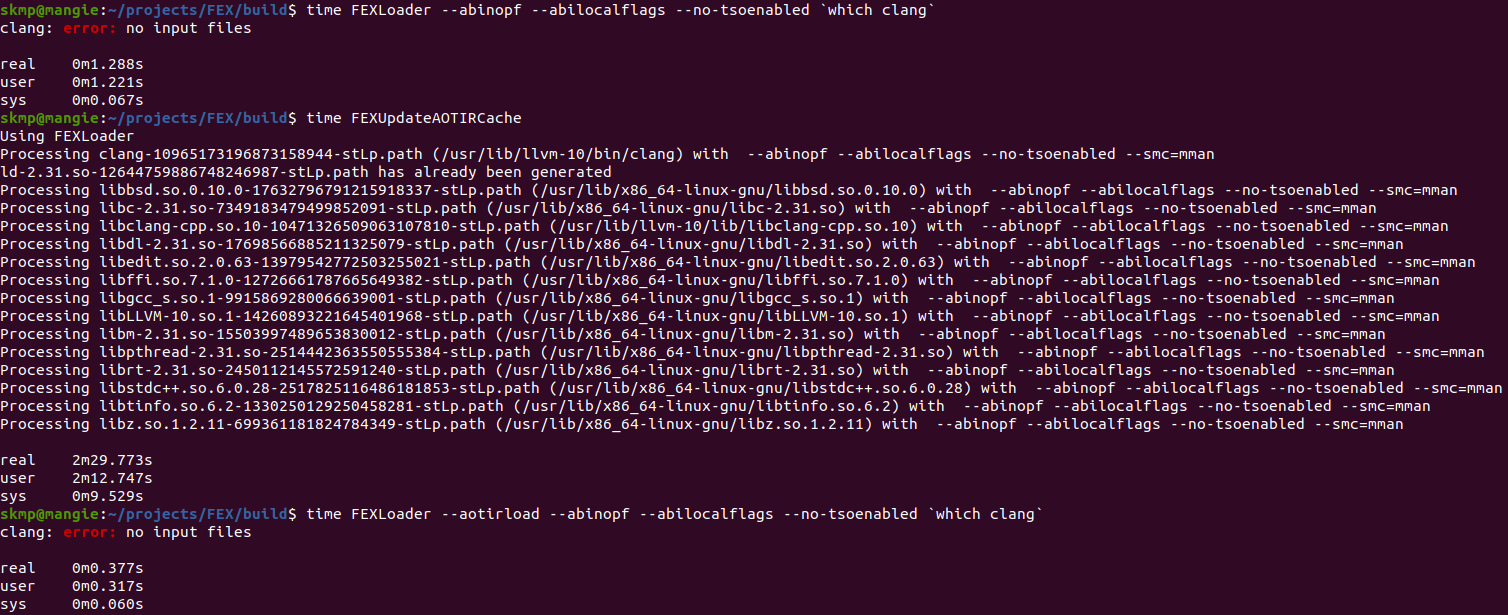Main > Another Code Cache approach for hex-emu (fex-emu derivative/fork)

As part of the work for fex/hex I implemeneted a multi-threaded, multi-process, just-in-time object code cache.
There were several challenges involved
- Unlike aotir, the index cannot be sorted, so it got stored as a BST
- Similarly, the format had to be crash / atomic safe
- AOTOBJ was the goal, so relocations were needed. This was done seperatelly iirc.
Key features include
- Reading from the caches requires a shared lock.
- Writing to the caches necessitates a unique lock and an advisory lock when resizing the index or data files.
- Index files are re-mapped as they grow in 64kb chunks.
- Data files are mapped in chunks of 16 Megabytes.
- Settings have been refined, merging AOT[IR/OBJ]Load and AOT[IR/OBJ]Capture to [IR/OBJ]Cache. The AOTIRGenerate has been removed, and a separate executable, FEXAOTGen, is now used.
How does it perform?
Some performance numbers from Orion
No Cache
skmp@ornio:~/projects/FEX/build$ time Bin/FEXLoader /bin/ls > /dev/null
real 0m0,277s
user 0m0,249s
sys 0m0,025s
OBJCache
skmp@ornio:~/projects/FEX/build$ time Bin/FEXLoader /bin/ls > /dev/null
[Info] Warning: OBJ/IR Caches are experimental, and might lead to crashes.
real 0m0,029s
user 0m0,012s
sys 0m0,015s
Native
skmp@ornio:~/projects/FEX/build$ time /bin/ls > /dev/null
real 0m0,007s
user 0m0,000s
sys 0m0,007s
Best OBJCache result so far
skmp@ornio:~/projects/FEX/build$ time Bin/FEXLoader /bin/true > /dev/null
[Info] Warning: OBJ/IR Caches are experimental, and might lead to crashes.
real 0m0,014s
user 0m0,009s
sys 0m0,005s